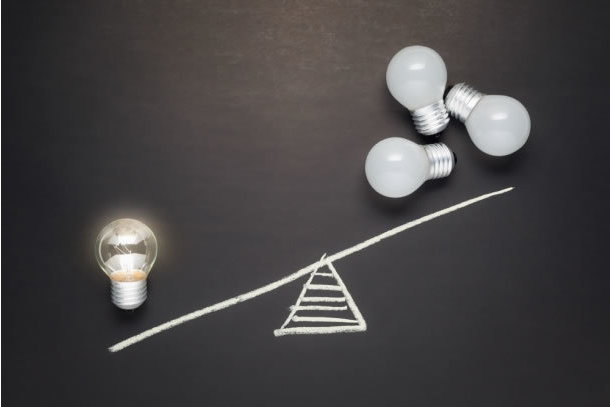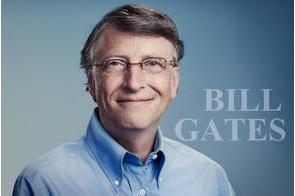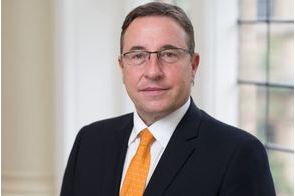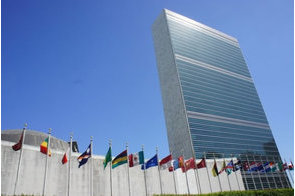Doing more and better with less

Summary
Perhaps the most important reason why sustainable living is important is to make the world a better place to live for future generations.
Economic and social progress in the last century has been accompanied by environmental degradation, threatening the very ecosystem on which our future development and survival depends. For instance, according to The Food and Agriculture Organization of the United Nations (FAO), an estimated one-third of all food produced each year (equivalent to 1.3 billion tons, which is about $1 trillion in value) is trashed by consumers and retailers due to poor transportation and harvesting practices. On its part, the International Energy Agency (IEA) says, if people around the world switch to energy-efficient light bulbs, the world can save $120 billion annually. But the production of food and electricity depletes natural resources.
If these issues are being addressed, they should be done faster. According to the United Nations, if the world's population reaches 9.6 billion by 2050 as already projected, it may take almost three planets to provide the natural resources needed to maintain the current lifestyles of the people. The Covid-19 pandemic provided countries the opportunity to develop economic recovery plans that would reverse current trends and shift consumption and production towards a more sustainable future.
Sustainable production means doing more with less materials, and sustainable consumption refers to the use of material products, energy, and immaterial services in such a way that their use minimizes impacts on the environment, so that human needs can be met not only in the present but also for future generations, according to the World Commission on Environment and Development. Together, sustainable consumption and production (SCP), as defined by the United Nations Environment Programme (UNEP), is about doing more and better with less. It is also about decoupling economic growth from environmental degradation, increasing resource efficiency and promoting sustainable lifestyles. SCP can contribute significantly to poverty reduction and transition to a green economy.
Some of these concepts are complex and require practical understanding, and we shed light on them briefly below.
Sustainable living: This refers to lifestyles that help in reducing the use of natural resources by individuals or societies. Sustainable living helps to protect the environment and reduce waste. In this regard, the role of individuals is very important; it is what determines if a society, country, or the world will achieve sustainable development.
Liveable environment: Clean air is key to a healthy society. When a community practices sustainable lifestyles, it inevitably contributes to quality environment by reducing carbon emissions and other forms of air pollution, making such communities liveable.
Conserving natural resources: The Earth's resources are limited. Reducing the use of them at any given time is good practice. One of the natural resources that is evidently infinite in supply is drinking water. The generation of electricity from the traditional sources also consumes considerable, and non-renewable, natural resources. Thus, it is essential to reduce the use of electricity, not only because of the cost of usage. At the same time, generation and sustainable use of energy from renewable sources are very important.
Opportunity for growth
The foregoing is essential to sustainable development. Sustainability practices provide opportunities for economic output growth. Companies that practice it will also save cost (at least in the long-term) and likely hire more people. Cities that practice sustainability, including fostering a healthy environment, will attract more and more residents and tourists. They will become more productive by attracting talented individuals who care about their health and that of the environment they live in.
With regard to investing, sustainable finance has become a strong and fast-growing asset class. Opportunities for making investment in sustainable development cut across many industries including energy, agriculture, real estate, transportation, etc.
Caring about future generations
Perhaps the most important reason why sustainable living is important is to make the world a better place to live for future generations. Human activities have been found to be the major contributors to climate change. These activities include energy production from fossil fuels, the use of the fuels for industrial production and transportation, dumping of wastes indiscriminately and in landfills, deforestation and agricultural practices that are unfriendly to the environment, amongst others.
If these activities by the present generations are unchecked and reversed, they will have considerable negative impacts on the lives of future generations. Also, in meeting our needs, we have to consider how the future generations would be able to meet their own needs – especially for finite natural resources.
Supporting economic development
A momentous shift from focusing on economic growth to human development and environmental sustainability is imperative for both developing and developed economies. Fostering inclusion is important in both development blocs. But while the level of economic development that has been achieved in the developed world remains a long shot for many developing nations, the advanced economies themselves need to adapt to SCP. They need to create more opportunities for all their citizens and contribute towards addressing the negative impacts of their decades of economic growth – in the form of climate change and economic deprivation – in the developing world.
Finding sustainable solutions to help conserve natural resources fosters innovations that can create new industries and jobs, help to save money, improve service delivery, increase wages and lower prices, amongst other benefits. It can also improve the reputation of organisations and strengthen customer loyalty and emotional bonding with other stakeholders.
Sustainable real estate
Organizations within the value-chain of real estate need to become more conversant with what the United Nations calls “Transforming our World: The 2030 Agenda for Sustainable Development”. Collaborative practices that are inclusive and embrace the “use of less now so that we have more to use tomorrow” should be understood and adopted. As the negative impact of globalization is increasing – including imported inflation, supply chain disruption, pandemics, etc. – sustainable real estate must be seen as a priority for us all.
At Bilaad Realty, sustainability is not a “nice to have”; it's our core business approach. We believe that creating collaborations, new pathways, and values to promote a sustainable environment that is socially inclusive and economically viable across all communities we develop have been essential to our success. We encourage other operators to strive to emulate this.
Bilaad Realty Limited is an Abuja-based company focused on delivering sustainable real estate solutions.
Related
-
Gates Foundation says inequality is a hindrance to progress on SDGs
The Goalkeepers 2019 Report says geography, gender, race, age, religion, levels of education and income have outsized ...
-
UNDP unveils a new development blueprint for the 21st century
The plan identifies six “signature solutions” against which UNDP will now align its resource and expertise, to ...
-
Global coalition set to launch One for All campaign for sustainable development
#ONEFORALL campaign will provide a platform for each global citizen to support one of the 17 SDGs.







